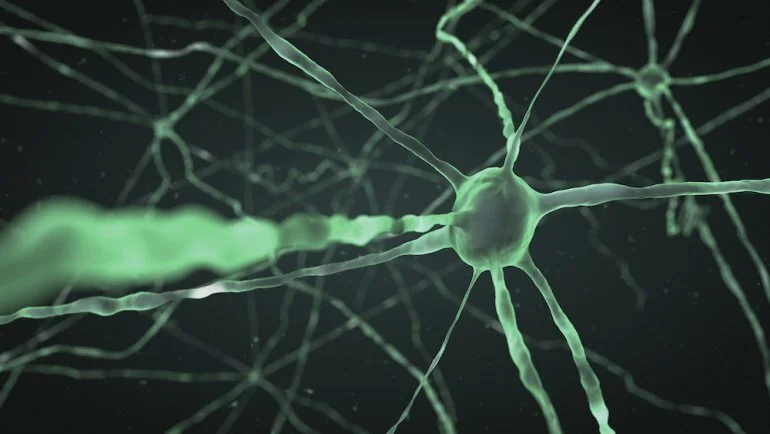Weill Neurohub Launches with Investments in Foundational Projects
Weill Neurohub is supporting five inaugural high-impact neuroscience projects. A pioneering research network, the Weill Neurohub unites three premier West Coast public universities to advance treatments for brain diseases. This initial project funding will support the development of foundational platforms and tools in four priority areas – imaging, genomics and molecular therapies, computation and data analysis, and engineering – deemed most likely to fuel new therapeutic discoveries across the three institutions.
Weill Neurohub launched in November 2019 with a $106 million gift from the Weill Family Foundation. The network brings together neuroscience communities at UC San Francisco (UCSF), UC Berkeley (UCB), and the University of Washington (UW) and draws on the power of Lawrence Berkeley National Laboratory (LBNL) and Lawrence Livermore National Laboratory (LLNL) to answer some of the toughest questions about the brain and find effective therapies for the millions of people who suffer from neurological and psychiatric illnesses. By forging interdisciplinary partnerships and harnessing resources collaboratively, the Weill Neurohub will accelerate neuroscientific and clinical breakthroughs.
An open-call application process for Weill Neurohub awards will begin later this spring, with the first grants being made in January 2021. Faculty members, postdoctoral fellows, and graduate students from the neuroscience communities at all three institutions will be invited to apply. The awards committee will consider proposals for highly innovative, cross-institutional projects and “high-risk/high-reward” explorations.
The five foundational projects are:
Engineering and application of “NextGen 7T” MRI scanner
The NextGen 7T project aims to create the world’s most powerful magnetic resonance imaging (MRI) scanner. It will allow investigators to see brain structures as small as 200 to 300 microns – one-quarter of the size of a grain of sand – which is about 60 times sharper than a standard hospital MRI. This ultra-high resolution will enable the discovery of previously unknown brain circuits and functions, providing investigators with new insights into brain diseases and how to treat them. Weill Neurohub funding will complete the construction of the scanner and the facility to operate it and support research to evaluate the first use cases.
Project leaders: David Feinberg, MD, PhD (UCB); Thomas Grabowski, MD (UW); Chunlei Liu, PhD (UCB); Pratik Mukherjee, MD, PhD (UCSF)
Identification of novel treatments for Alzheimer’s and related disorders
This project aims to speed progress toward safe and effective therapies for Alzheimer’s disease and related disorders (ADRD). Historically, progress has been limited by two barriers: an incomplete understanding of the cellular processes that lead to ADRD and a lack of robust cellular models for identifying and evaluating new therapeutic targets. Weill Neurohub support will fund the development of cross-disciplinary strategies and tools to overcome these barriers, including biobanks for collecting brain tissue and cells and platforms for investigating new therapies.
Project leaders: Jennifer Doudna, PhD (UCB); Lea Grinberg, MD, PhD (UCSF); Suman Jayadev, MD (UW); C. Dirk Keene, MD, PhD (UW); Michael Rape, PhD (UCB); William Seeley, MD (UCSF); Jessica Young, PhD (UW)
Creation of a Weill Neurohub collaborative platform for data and analytics
This project will provide a platform for data-science innovation and training at the Weill Neurohub. In launching the platform, Weill Neurohub funding will support the development of new algorithms, software, and shared infrastructure for processing the vast amounts of data currently being generated in neuroscience. The funding will also support outreach and training in advanced computational science for students, fellows, and faculty members from diverse disciplines across the Weill Neurohub community.
Project leaders: Kristofer Bouchard, PhD (UCB, LBNL); Bing Brunton, PhD (UW); Thomas Grabowski, MD (UW); Roland Henry, PhD (UCSF); Geoffrey Manley, MD, PhD (UCSF); Shankar Sundaram, PhD (LLNL); Bin Yu, PhD (UCB)
Advancement of electrical stimulation for treating neurological and psychiatric illness
Electrical stimulation of the brain is a promising technique for treating a wide range of neuropsychiatric disorders, including stroke; chronic pain; and severe, intractable depression and anxiety. This project aims to improve the efficacy of next-generation neurostimulation devices, which could decode a patient’s brain activity and use that information to provide personalized, targeted stimulation for relieving symptoms. Weill Neurohub funding will support research and engineering to improve and test the effectiveness of these devices.
Project leaders: Edward F. Chang, MD (UCSF); Karunesh Ganguly, MD, PhD (UCSF); Michel Maharbiz, PhD (UCB); Chet Moritz, PhD (UW); Rikky Muller, PhD (UCB); Jeffrey G. Ojemann, MD (UW); Amy Orsborn, PhD (UW); Azadeh Yazdan-Shahmorad, PhD (UW)
Construction of next-generation microscopes for live brain imaging
This project aims to build three state-of-the-art microscopes that will allow investigators to observe brain cells in unprecedented detail. Weill Neurohub funding will support the design and engineering of the microscopes’ hardware as well as the computational infrastructure for data analysis and sharing. The completed microscopes will be available to all Weill Neurohub investigators, thereby expanding research opportunities and collaborations.
Project leaders: Graeme Davis, PhD (UCSF), Adrienne Fairhall, PhD (UW), Na Ji, PhD (UCB), Saul Kato, PhD (UCSF), Laura Waller, PhD (UCB)

